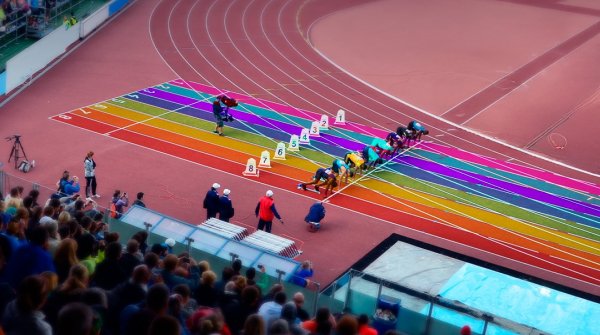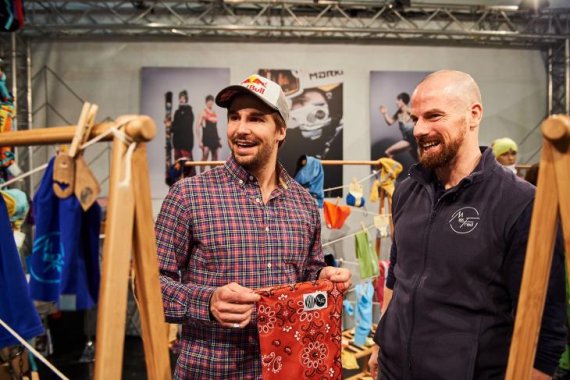
ISPO.com: Mr. Mayr, the 2018 Olympics in Pyeongchang are about to begin. You were on the German team in Sochi in 2014. What’s it like to be a mere spectator now?
Bene Mayr: In 2014, I experienced the whole hype surrounding the fact that freestyle skiing had just been introduced as a new discipline at the Olympics. However, I’ve realized that my body can no longer cope with this kind of freestyle skiing, for example the jumps in the park or on the frozen piste. That is why I decided back then to freeride cross country only. This has made me discover a completely different way of skiing I never knew before.
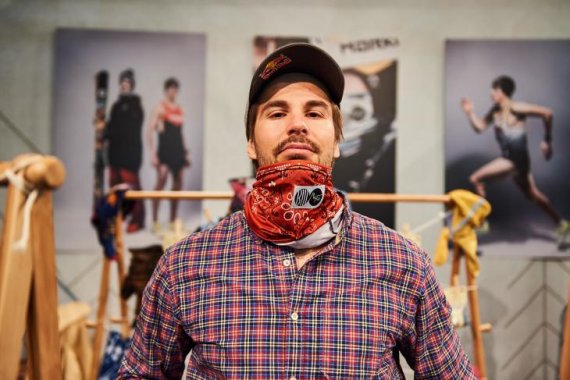
What do you get out of freeriding?
It’s a lot rougher; the conditions are extremely complex. There’s only one run; you can only go down the mountain once. That’s why a lot goes through your mind as you stand at the top. The athletes look at the mountain from below, come up with a plan, and then as soon as you stand at the top, everything suddenly looks different. The avalanche risk, the condition of the snow – freeriders must be able to react to it and if necessary choose a different way down.
Danger included?
Absolutely. Sometimes, the run might be steeper than you thought; sometimes, the jump might be bigger. And the consequences can simply be very, very serious. We always go for “never fall”. A freerider is not allowed to fall, because if you fall, it always ends badly because it’s so steep.
And freeride skiing wouldn’t be right for the Olympics?
No! Theoretically, it would be feasible but it would change the discipline. The Olympics, FIS and all those associations hugely change a sport. I have seen this happen with other freestyle skiing disciplines. The Olympics change many aspects of a sport; it will never be the same again.
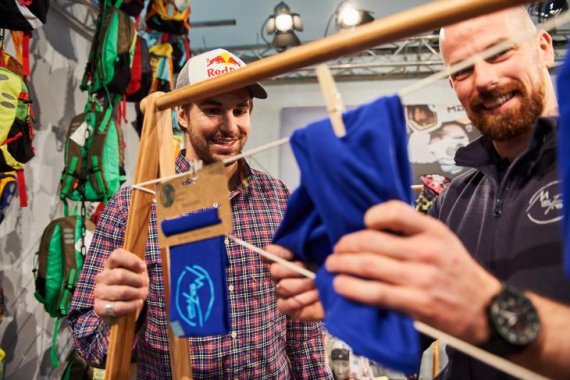
What do you mean?
In the past, people skied together; the athletes were all very close. Today, this ethos is missing: The idea that you do this for fun and because you are passionate about your sport. These days, it’s all extremely performance-oriented. That takes away the free, wild character of the sport. Instead, it is being pushed into rigid structures.
At ISPO Munich, skiing legend Markus Wasmeier criticized the IOC for systematically destroying the Olympic Games.
That’s right. Just look at what’s happening with the Russian athletes: Sometimes they’re excluded, then they are allowed to take part again, then they’re banned again. You think to yourself: If these scandals continue, how long will the Olympics be able to hang on to their relevance? All of that is destroying this competition. The associations have to watch out that they don’t go too far and we no longer have any Olympic Games in 20 years’ time.
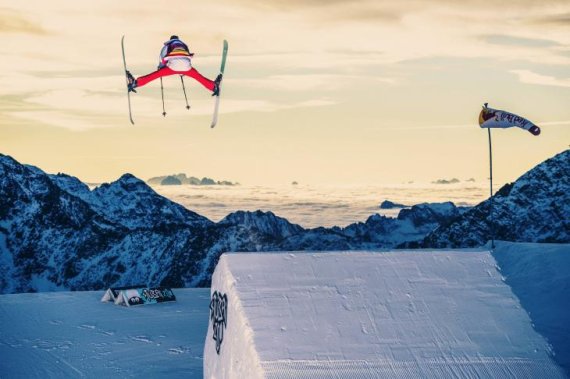
Rather than competing in the Olympics, you now pursue various business activities; you part-own a bar in Munich, for example.
Yes, it’s called the “Schorsch-Bar”. I opened it together with some friends a few years ago. We now run five hospitality businesses; four in Munich - bars, clubs and restaurants - and a café in Innsbruck. I also run a real estate company together with another skier, Sven Kühnle. We buy houses, do them up and then sell them on.
Munich natives would call your bar a “neighborhood joint” - it’s a place where people from the neighborhood meet, a bar for locals. Munich is in the throes of gentrification. Does this worry Mayr the businessman and Mayr the top athlete in the long term?
Yes, very much so. The bar is located right in the center of town, in Maxvorstadt. The neighbors drop in; everyone knows everyone else. If you need help, all you have to do is ask. That’s worth a lot. Let’s compare the bar to a product you want to sell: You have to be able to identify with it, feel comfortable with it.
In this case, you identify with freeskiing. Final question: Where are the trends heading in the next few years?
It’s always about making a competition interesting for the public, and how it’s structured. You have to bring the discipline closer to the public; we’re talking digital, the social media. In parallel, the discipline is developing further all the time: There will always be one more spectacular twist, someone who will dare to do one flip more. It’s simply a matter of how the industry behind it uses this. The question is: How can it market this sport even better? Ultimately, that’s what it’s all about.
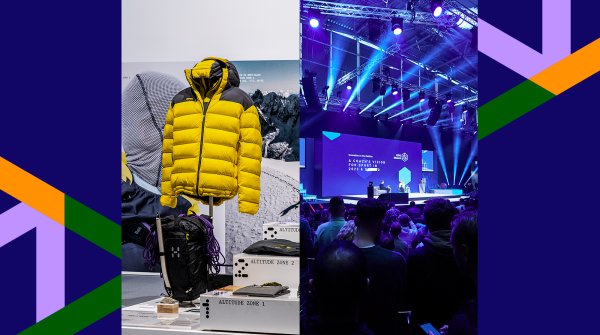 MunichLast Week at ISPO
MunichLast Week at ISPO MunichRetail Conference
MunichRetail Conference
- ISPO awards
- Mountain sports
- Bike
- Design
- Retail
- Fitness
- Health
- ISPO Job Market
- ISPO Munich
- ISPO Shanghai
- Running
- Brands
- Sustainability
- Olympia
- OutDoor
- Promotion
- Sports Business
- ISPO Textrends
- Triathlon
- Water sports
- Winter sports
- eSports
- SportsTech
- OutDoor by ISPO
- Heroes
- Transformation
- Sport Fashion
- Urban Culture
- Challenges of a CEO
- Trade fairs
- Sports
- Find the Balance
- Product reviews
- Newsletter Exclusive Area
- Magazine



